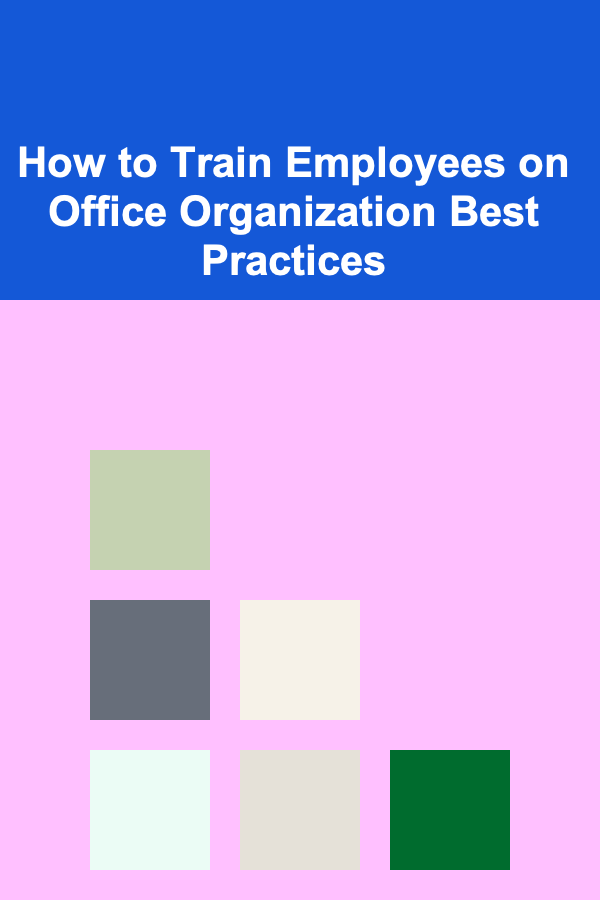
What to Research Before a Job Interview: A Complete Guide
ebook include PDF & Audio bundle (Micro Guide)
$12.99$10.99
Limited Time Offer! Order within the next:

Preparing for a job interview goes beyond just rehearsing your answers to common questions. In order to stand out and leave a lasting impression on the interviewer, it's essential to do thorough research on the company, the role, and the industry. This level of preparation demonstrates your genuine interest in the position and showcases that you are proactive, resourceful, and eager to contribute. In this guide, we'll walk you through the key areas you should research before your job interview to ensure that you're ready to succeed.
Research the Company
Before walking into an interview, you need to have a solid understanding of the company you're applying to. This research will not only help you tailor your responses but also give you context for understanding how you fit into the organization's goals and culture.
Key Areas to Focus On:
-
Company Overview: Familiarize yourself with the company's mission, vision, and values. This will help you align your answers with what's important to the company. If their values resonate with your own, make sure to highlight that during the interview.
- What to look for: Company website (About Us section), mission statements, corporate social responsibility (CSR) initiatives, and leadership philosophy.
-
Products and Services: Understand what the company offers to its customers. Be prepared to discuss how you can contribute to improving or expanding their offerings.
- What to look for: Product pages, service descriptions, or press releases that announce new product launches or innovations.
-
Recent News and Developments: Stay updated on recent events that involve the company, such as new partnerships, acquisitions, product launches, or industry recognition. Being aware of current events shows that you are engaged and informed.
- What to look for: News articles, press releases, company blogs, and social media platforms.
-
Company Culture: Research the work culture to determine if it's a good fit for you. Look at employee reviews on sites like Glassdoor, or research their social media pages to get a sense of the workplace environment.
- What to look for: Employee testimonials, company reviews, social media pages (LinkedIn, Twitter, etc.), and videos or articles on their work culture.
Why It Matters:
Researching the company helps you understand their values, goals, and expectations. When you can reference company-specific details during the interview, it shows the interviewer that you've done your homework and that you're genuinely interested in the position and the company.
Research the Job Role
In addition to understanding the company, it's crucial to gain a thorough understanding of the specific role you're interviewing for. This allows you to identify key areas where you can add value, anticipate the skills the interviewer may focus on, and tailor your responses accordingly.
Key Areas to Focus On:
-
Job Description: Carefully read the job listing again and make sure you understand the specific responsibilities, required qualifications, and key skills. Pay attention to the primary duties and how they align with your experience and skills.
- What to look for: Key tasks mentioned in the listing, required qualifications, and must-have skills or experiences.
-
Required Skills: Identify the technical and soft skills required for the role. Be prepared to give specific examples of how you've demonstrated these skills in your previous roles.
- What to look for: Keywords related to hard skills (e.g., programming languages, software proficiency) and soft skills (e.g., communication, leadership).
-
Key Performance Indicators (KPIs): Try to understand the key metrics or performance indicators that are used to measure success in this role. This allows you to speak more confidently about how you can help the company achieve those targets.
- What to look for: Discussions on measurable outcomes, success benchmarks, or metrics used to assess performance in similar roles.
-
Team Structure: Understand the size of the team you'll be working with and the reporting structure. Knowing whether you'll be working independently or collaborating with a team can help you prepare better answers.
- What to look for: Organization chart, LinkedIn profiles of potential team members, or any information that reveals the role's position within the company structure.
Why It Matters:
Researching the job role helps you identify the expectations of the employer and the specific skillset they are looking for. When you know the role inside and out, you can confidently highlight your relevant experience and demonstrate that you're the perfect fit.
Research the Interviewer
Whenever possible, find out who will be interviewing you. Having this information allows you to tailor your responses and even establish a connection. You'll also feel more comfortable if you're familiar with the interviewer's background and role within the company.
Key Areas to Focus On:
-
LinkedIn Profile: Review the interviewer's LinkedIn profile to understand their career background, their current role, and any shared interests or connections. This can help you find a common ground for conversation and may make it easier to build rapport.
- What to look for: Job history, educational background, mutual connections, any posts or articles they've shared that might provide insight into their professional interests.
-
Professional Interests: If the interviewer has written any articles or spoken at conferences, take note of those contributions. You may be able to reference these points in the interview, showing that you've done your research and have a shared interest in their work.
- What to look for: Publications, conference speaking engagements, or interviews they've participated in.
-
Interviewer's Role: Understand the interviewer's position in the company and how it relates to the role you're applying for. Knowing this can help you tailor your questions to show that you're thinking about the broader organization, not just the specific role.
- What to look for: Their department, the type of decisions they make, and how they might evaluate your performance in the role.
Why It Matters:
Researching the interviewer allows you to personalize your approach, find common ground, and demonstrate your interest in both the company and the people you'll be working with. It also helps you prepare for their specific line of questioning based on their position.
Research the Industry
A strong understanding of the industry will allow you to speak intelligently about market trends, challenges, and how the company fits into the larger picture. It will also help you show that you are not just focused on your role but are thinking about how the company can succeed in a competitive landscape.
Key Areas to Focus On:
-
Current Industry Trends: Stay updated on trends, challenges, and innovations in the industry. This allows you to demonstrate your industry knowledge and show how you can contribute to the company's growth and adaptation in a changing environment.
- What to look for: Industry reports, news articles, and thought-leadership blogs from experts in the field.
-
Competitors: Research the company's competitors to understand the competitive landscape. Knowing who the company's biggest competitors are and how they differentiate themselves can help you answer questions like, "Why do you want to work for us, and not one of our competitors?"
- What to look for: Market analysis, competitor reviews, and industry rankings.
-
Industry Challenges: Be aware of the common challenges companies in the industry face, whether it's due to economic shifts, technological advancements, or regulatory changes. This can help you frame your skills as solutions to those problems.
- What to look for: Industry reports, news articles on the sector's biggest challenges, or analysis of potential disruptions.
Why It Matters:
By demonstrating industry knowledge, you show that you're not just prepared for the role but are also invested in the company's success in its competitive field. Employers value candidates who can bring in-depth understanding and innovative ideas to the table.
Prepare Thoughtful Questions
An interview is a two-way conversation. While preparing answers to common questions is important, preparing thoughtful questions to ask the interviewer is equally essential. These questions will help you determine if the company and role are a good fit for you and will also showcase your interest in the position.
Key Areas to Focus On:
- Role-Specific Questions: Ask about the key priorities for the first 90 days, the biggest challenges the person in the role might face, or how success is measured in the role.
- Company Culture: Ask about the company's work environment, team dynamics, and how they support professional development.
- Growth Opportunities: Inquire about opportunities for growth and advancement within the company and how the company fosters employee development.
Why It Matters:
Asking insightful questions shows that you've thought about the job beyond just the salary and benefits. It helps you gather the information you need to make an informed decision about whether the job is the right fit for you.
Conclusion
Thorough research before a job interview is crucial to your success. By understanding the company, the role, the interviewer, and the industry, you'll be able to engage in meaningful conversations that demonstrate your qualifications, enthusiasm, and genuine interest in the position. Preparing thoughtful questions and demonstrating that you're well-informed can set you apart from other candidates and increase your chances of landing the job. Remember, the more effort you put into your preparation, the more likely you are to make a lasting impression and secure that dream job.

How to Make DIY Pet Toys for Fun and Enrichment
Read More
How to Save Money with Easy and Effective DIY Beauty Treatments
Read More
How to Secure Sliding Glass Doors and Windows
Read More
How to Store Extra Kitchen Appliances Without Overcrowding
Read More
How to Train Employees on Office Organization Best Practices
Read More
Scaling Passive Income by Offering Deep Learning as a Service
Read MoreOther Products

How to Make DIY Pet Toys for Fun and Enrichment
Read More
How to Save Money with Easy and Effective DIY Beauty Treatments
Read More
How to Secure Sliding Glass Doors and Windows
Read More
How to Store Extra Kitchen Appliances Without Overcrowding
Read More
How to Train Employees on Office Organization Best Practices
Read More